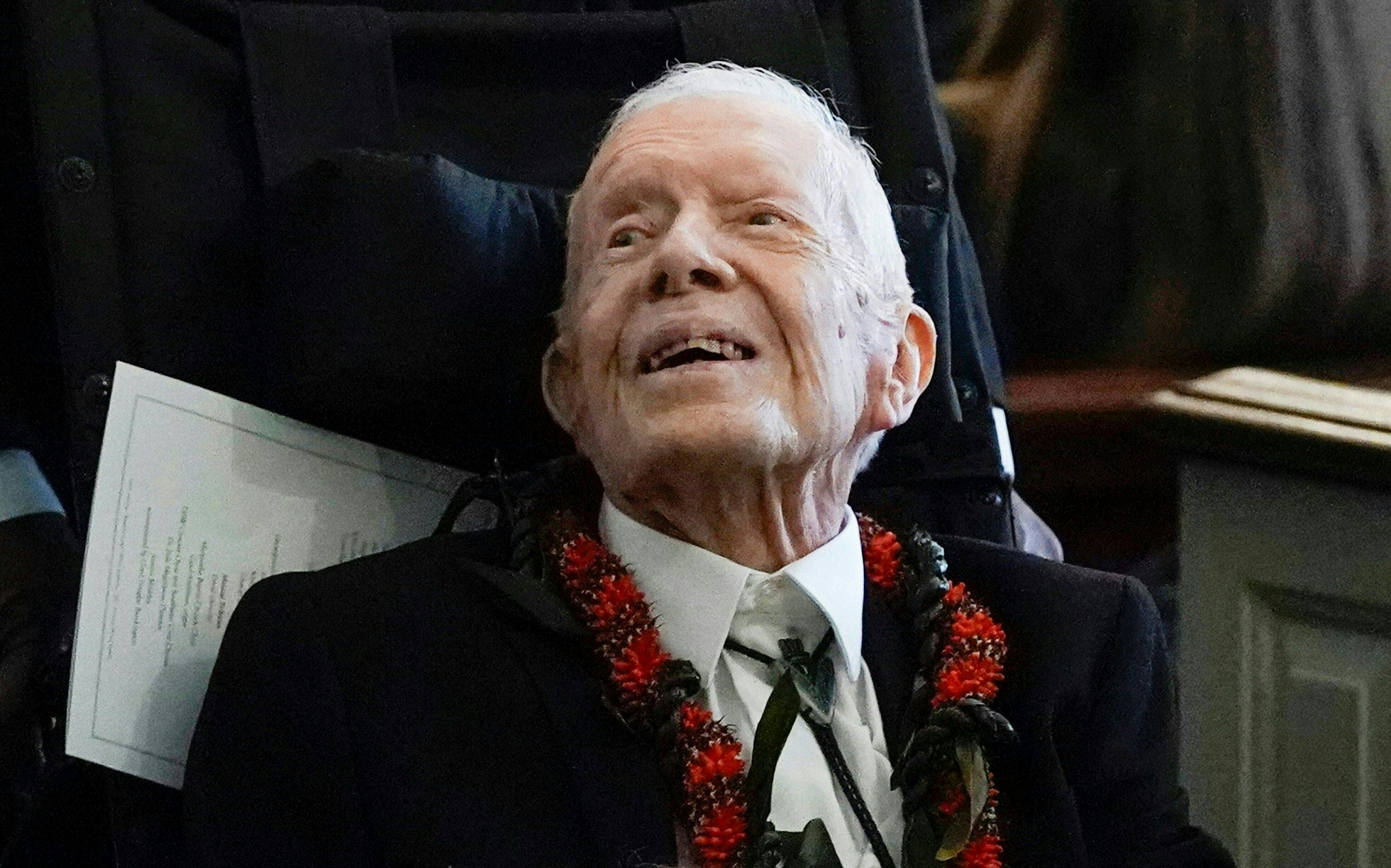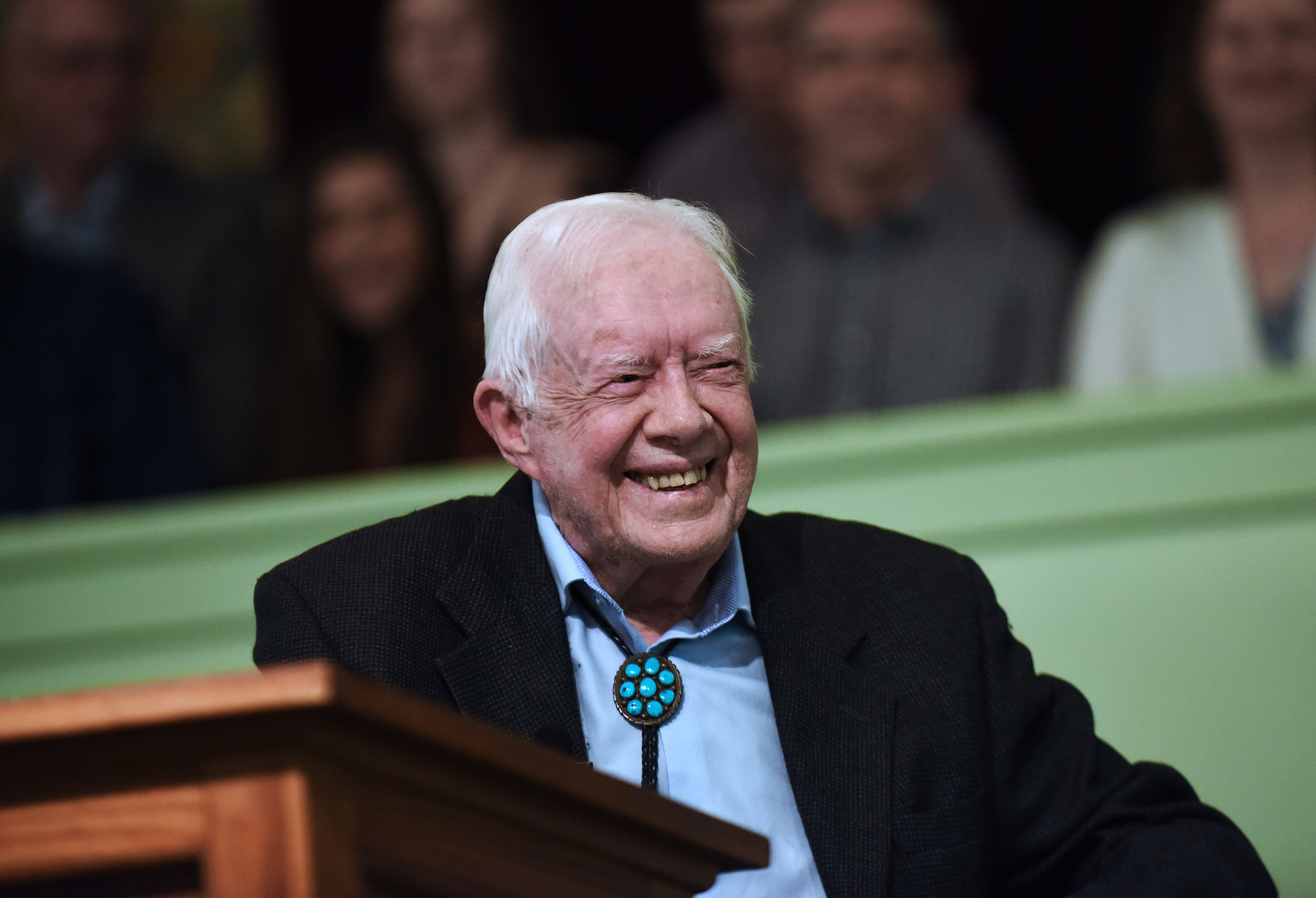Successful farmer and businessman, Georgia governor, American president and Noble Peace Prize winner: Jimmy Carter has lived a life that afforded him status and power. Yet the 39th and longest-lived U.S. president, who turns 100 on Oct. 1, was never quite the insider that his accomplished resume might suggest.
It’s a reality that gets obscured by many of the tributes that have flowed since Carter entered hospice care early last year, as the Democrat garners praise not only for his longevity but his achievements in government and as a global humanitarian for decades after he left the White House in 1981.
Watch NBC6 free wherever you are
“Jimmy Carter was always an outsider,” Jonathan Alter, his biographer, said in an interview.
Indeed, Carter climbed the political ladder campaigning against the establishment. He won in 1976 as the little-known former Georgia governor promising honesty and competence after the quagmire of Vietnam and the Watergate scandal that toppled Richard Nixon. But in neither Atlanta nor Washington did Carter command power the way many politicians are able to do.
Get local news you need to know to start your day with NBC 6's News Headlines newsletter.
Even 28 years after his humbling defeat to Ronald Reagan, Carter could not draw an invitation to speak at the 2008 Democratic National Convention, because a young nominee named Barack Obama was wary about any association with the one-term president whom voters had rejected.
“It was still an epithet: ‘Another Jimmy Carter,’” David Axelrod, top Obama adviser and confidant, told The Associated Press, calling it a “painful” decision for the eventual 44th president.
Carter’s outsider identity traced back to his earliest years, growing up on a farm outside of his tiny hometown in south Georgia.
“He was from one of the wealthier families,” Alter noted, because James Earl Carter Sr. owned land that Black tenant farmers worked. “But when he went to school in Plains, and he had been barefoot for most of the year, the kids in town would think of him as a country bumpkin.”
But it was that dichotomy that Carter ultimately parlayed into the presidency.
As a young state senator, he sometimes bucked party leaders. He aligned neither with the conservative segregationists nor the racial progressives who together formed the Democratic Party in the South. He privately supported integration but never met his fellow Georgian, Martin Luther King Jr.
Carter won the governor’s office in 1970 as a racial moderate. In office, he angered some of his white supporters by opening state government to Black contractors and appointees. He became close to King’s widow and father. He also angered his former legislative colleagues with a reorganization of state government.
“He spent a lot of political capital making people mad, going after their fiefdoms,” said Terry Coleman, a Carter ally in the Assembly.
When Carter decided to seek the Oval Office, he’d only briefly met one president – Nixon – at a White House reception. National media largely dismissed Carter’s chances against better-known figures, several of them senators. But his pitch as the honest Baptist and peanut farmer fit voters’ mood.
Still, it wasn’t enough to smoothly navigate the ways of the nation’s capital.
“His was a unique presidency in that it came from completely outside the party establishment and then continued to operate that way even in Washington,” said Joe Trippi, who worked for Massachusetts Sen. Ted Kennedy, scion of a Democratic dynasty and Carter’s perpetual liberal rival.
Trippi noted that Carter mostly avoided appointing veterans of the Roosevelt, Truman, Kennedy and Johnson administrations.
Obama, Reagan and certainly Donald Trump challenged the establishment as candidates, but ultimately absorbed their parties. Carter, as the sitting president in 1980, had to watch convention delegates give Ted Kennedy roaring ovations even after Carter had won their bruising primary fight.
“The Democratic Party never belonged to Jimmy Carter,” Trippi said.
Nor did Carter master Capitol Hill, the national press corps or Washington’s social scene.
Amber Roessner, a Carter expert at the University of Tennessee, said he faced two barriers: Congressional leaders did not view him as one of them, and national media approached him with a regional bias against the South.
“Some members of the press,” Carter complained in a Playboy magazine interview, “treat the South as a suspect nation.”
Long after leaving office, the U.S. Naval Academy graduate and engineer still bemoaned a political cartoon published around his inauguration that depicted his family approaching the White House with his mother, “Miss Lillian,” chewing on a hayseed.
In December 1977, when Carter’s team had been in the West Wing less than a year, Washington Post society columnist Sally Quinn labeled them “an alien tribe,” incapable of “playing ‘the game.’” An elite Georgetown hostess herself, Quinn nodded to Washington’s “frivolity” even as she assessed “the Carter people” as “not, in fact, comfortable in limousines, yachts, or in elegant salons, in black tie” or with “place cards, servants, six courses, different forks, three wines ... and after-dinner mingling.”
Carter returned home in 1981 “humiliated by the voters” and “at least somewhat depressed,” Alter said, but found his most sustained success as an outside influencer once he and Rosalynn Carter founded The Carter Center in Atlanta in 1982.
Decades of global democracy and human rights advocacy followed. Some of the former president’s international maneuvering annoyed his successors and Washington’s foreign policy establishment. Carter criticized U.S. wars in the Middle East, the West’s isolation of North Korea and Israel’s treatment of Palestine. He won a Nobel Peace Prize along the way.
“The best way to understand Carter as outsider is to see him as always understanding the rules of the insider circle,” Roessner said. “He just didn’t always play by them.”



